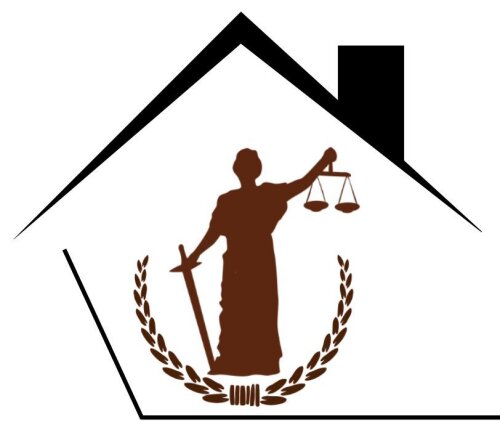Best Agriculture Lawyers in Santa Marta
Share your needs with us, get contacted by law firms.
Free. Takes 2 min.
List of the best lawyers in Santa Marta, Colombia
About Agriculture Law in Santa Marta, Colombia
Santa Marta, located on Colombia's Caribbean coast, is a region known for its rich agricultural resources. The city's warm climate, fertile soils, and access to water from the Sierra Nevada mountains make it ideal for cultivating crops such as bananas, coffee, cocoa, avocados, and palm oil. Agriculture in Santa Marta not only supports local communities but also plays a crucial role in the export economy. As a result, agricultural activities are subject to a range of local, departmental, and national regulations aimed at ensuring sustainability, protecting the environment, and safeguarding the interests of farmers and landowners.
Why You May Need a Lawyer
Agriculture in Santa Marta involves a complex interplay of land use, water rights, labor laws, environmental regulations, and commercial contracts. People may require legal help in different situations, including:
- Land acquisition, leasing, or disputes over land boundaries
- Negotiating and drafting contracts for sale or export of agricultural products
- Compliance with environmental laws and regulations regarding pesticide use, deforestation, or water management
- Labor and employment issues, such as contracts with workers, social security, and work conditions
- Inheritance and transfer of agricultural land
- Support with obtaining governmental subsidies, permits, or certifications
- Representation in administrative proceedings or inspections
Legal guidance can help prevent costly mistakes, resolve disputes, and protect your interests in all agricultural activities.
Local Laws Overview
Agriculture in Santa Marta is primarily regulated by national laws, though some aspects are managed at the municipal and departmental levels. Some key legal areas include:
- Rural Property Law - Regulations on the ownership, transfer, and use of rural land, including the rights of indigenous and Afro-Colombian communities.
- Environmental Law - Governs responsible land use, water management, conservation areas, and restrictions on deforestation and pesticide use.
- Labor Law - Addresses employment contracts, minimum wage, work conditions, and social security for agricultural workers.
- Commercialization and Export Law - Sets standards and procedures for exporting agricultural products, including required sanitary certifications.
- Subsidies and Support Programs - Laws governing access to credits, insurance, and incentives for small and medium farmers.
Local authorities such as the Alcaldía de Santa Marta and departmental agencies may issue regulations on land zoning, water usage, and support programs for local producers, often coordinating with national bodies like the Ministry of Agriculture and Rural Development and the Colombian Agricultural Institute (ICA).
Frequently Asked Questions
What types of crops are most commonly grown in Santa Marta?
Common crops include bananas, avocados, yuca, coffee, cocoa, and palm oil, due to the region's climate and soils.
Do I need a special permit to buy or use rural land for agriculture?
In most cases, foreigners and Colombians can buy rural land, but permits may be required for large acquisitions, protected areas, or land near indigenous territories.
What environmental regulations must I comply with?
Agricultural activities must follow rules on water use, waste management, pesticide application, and deforestation, with oversight by CorpoMagdalena and national authorities.
Are there subsidies or government programs for farmers?
Yes, various subsidies, credits, and technical assistance programs are available through entities like Banco Agrario and the Ministry of Agriculture, especially for small-scale producers.
How can I resolve a boundary dispute with a neighboring property?
Legal intervention may be required. A lawyer can assist with mediation, negotiation, and if needed, formal proceedings to resolve property disputes.
What are the requirements for hiring agricultural workers?
Employers must comply with labor laws, including formal contracts, minimum wage, social security, and safe working conditions.
What is needed to export agricultural products?
You will need to meet food safety standards, obtain phytosanitary certificates from ICA, and comply with export regulations and trade authorities.
Can indigenous communities claim land rights over agricultural land?
Yes, there are special laws recognizing ancestral rights of indigenous and Afro-descendant communities. Land claims must be handled according to Colombian law.
How do I transfer agricultural property through inheritance?
Inheritance processes must comply with Colombian civil law and may require legal support for asset distribution, title registration, and tax obligations.
Which local authorities regulate agriculture in Santa Marta?
The Alcaldía de Santa Marta, Departmental Government (Gobernación del Magdalena), CorpoMagdalena, and ICA are key authorities. National ministries also play critical roles in regulation and oversight.
Additional Resources
If you need further information or support, the following resources and organizations can be helpful:
- Ministry of Agriculture and Rural Development (Ministerio de Agricultura y Desarrollo Rural)
- Colombian Agricultural Institute (ICA - Instituto Colombiano Agropecuario)
- CorpoMagdalena (Corporación Autónoma Regional del Magdalena) for environmental regulation
- Banco Agrario de Colombia for financing support and subsidies
- Secretaría de Desarrollo Rural de la Alcaldía de Santa Marta
- Legal clinics at local universities offering free or low-cost legal advice
- Local farmers’ associations and agri-business cooperatives
Next Steps
If you require legal assistance in agricultural matters in Santa Marta, take these steps:
- Gather all relevant documents related to your property, contracts, environmental permits, or disputes.
- Identify the nature of your legal issue and whether it involves land, labor, contracts, or government compliance.
- Contact a local lawyer or law firm specializing in agriculture or rural law. Many legal professionals offer initial consultations to discuss your matter.
- Consider reaching out to government agencies or local organizations for guidance or referrals to trusted legal specialists.
- Stay informed about your rights and obligations as an agricultural producer by participating in local agricultural associations or training programs.
Legal support can help protect your investments, ensure compliance, and resolve disputes efficiently. Taking proactive steps to address legal matters is key to long-term success in agriculture in Santa Marta, Colombia.
Lawzana helps you find the best lawyers and law firms in Santa Marta through a curated and pre-screened list of qualified legal professionals. Our platform offers rankings and detailed profiles of attorneys and law firms, allowing you to compare based on practice areas, including Agriculture, experience, and client feedback.
Each profile includes a description of the firm's areas of practice, client reviews, team members and partners, year of establishment, spoken languages, office locations, contact information, social media presence, and any published articles or resources. Most firms on our platform speak English and are experienced in both local and international legal matters.
Get a quote from top-rated law firms in Santa Marta, Colombia — quickly, securely, and without unnecessary hassle.
Disclaimer:
The information provided on this page is for general informational purposes only and does not constitute legal advice. While we strive to ensure the accuracy and relevance of the content, legal information may change over time, and interpretations of the law can vary. You should always consult with a qualified legal professional for advice specific to your situation.
We disclaim all liability for actions taken or not taken based on the content of this page. If you believe any information is incorrect or outdated, please contact us, and we will review and update it where appropriate.









